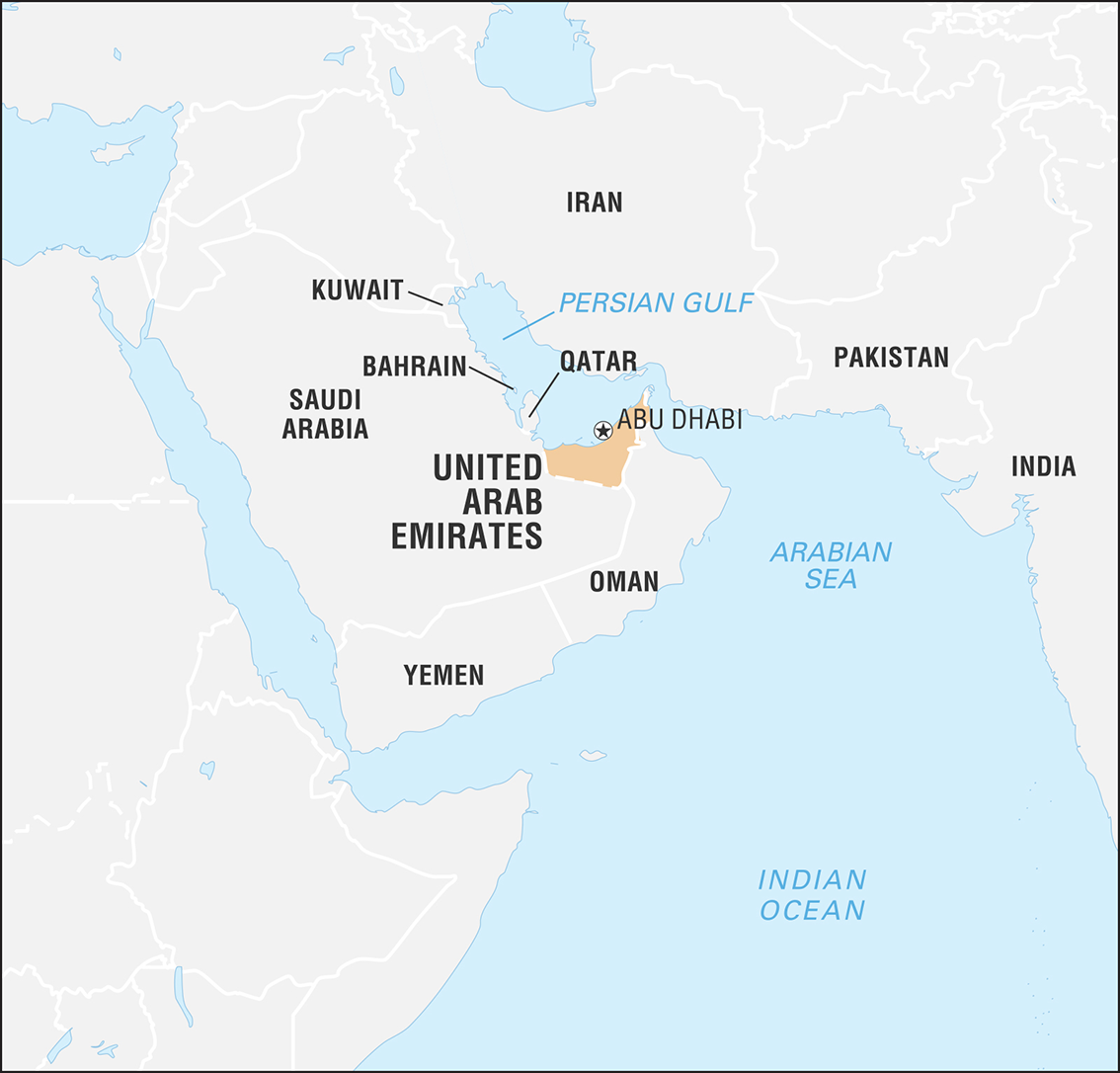International Relations
One Year of India- UAE CEPA
- 03 May 2023
- 5 min read
For Prelims: CEPA, India-UAE CEPA, India-UAE trade relations
For Mains: India and its Neighbourhood, Bilateral Groupings & Agreements, India-UAE Relations
Why in News?
- Recently, the India-UAE Comprehensive Economic Partnership Agreement (CEPA) completed one year of implementation.
What is CEPA?
- It is a kind of free trade pact that covers negotiation on the trade in services and investment, and other areas of economic partnership.
- It may even consider negotiation in areas such as trade facilitation and customs cooperation, competition, and IPR.
- Partnership agreements or cooperation agreements are more comprehensive than Free Trade Agreements.
- CEPA also looks into the regulatory aspect of trade and encompasses an agreement covering the regulatory issues.
What is the India-UAE CEPA?
- About:
- The India-UAE CEPA is a landmark free trade agreement (FTA) between the two countries. It covers trade in goods, services, investment, and other areas of economic cooperation.
- The CEPA entered into force on May 1, 2022 and is expected to increase the total value of bilateral trade in goods to over USD 100 billion and trade in services to over USD 15 billion within five years.
- The CEPA is the first deep and full-fledged FTA signed by India with any country in the past decade.
- Salient Features:
- Trade in Goods:
- The CEPA provides for preferential market access for over 80% of products traded between India and the UAE.
- India will benefit from the reduction or elimination of tariffs on its exports to the UAE, especially in sectors such as gems and jewellery, textiles, leather, footwear, sports goods, plastics, furniture, agricultural and wood products, engineering products, medical devices and automobiles.
- Trade in Services:
- The CEPA covers 11 broad service sectors and more than 100 sub-sectors, such as business services, communication services, construction and related engineering services, distribution services, educational services, environmental services, financial services, health related and social services, tourism and travel related services, recreational cultural and sporting services and transport services.
- Both countries have offered enhanced market access for each other's service providers across these sectors.
- Investment:
- The CEPA provides for a liberal and non-discriminatory regime for cross-border investment between India and the UAE.
- It also includes provisions on, dispute settlement and cooperation on investment facilitation.
- Some Other Areas of Cooperation:
- Protection and promotion of investments
- Technical barriers to trade (TBT)
- Sanitary and phytosanitary (SPS) measures
- Dispute settlement
- Movement of natural persons
- Pharmaceutical products
- Intellectual property rights (IPR)
- Digital trade
- Trade in Goods:
How are India-UAE Trade Relations?
- Trade:
- UAE is India's 3rd largest trading partner (after US, China). Bilateral trade turnover between the two was US$ 68.4 billion in 2021.
- FDI:
- UAE is the 7th largest investor in India with cumulative FDI inflows of US$ 15,179 million from April 2000 – September 2022.
- Exports:
- Major Indian exports to UAE are petroleum products, gems and jewellery, machinery and instruments, chemicals, iron and steel, textiles and garments, cereals, meat and meat products, etc.
- Imports:
- Major Indian imports from UAE are crude oil, gold, pearls and precious stones, metal ores and metal scrap, chemicals, electrical machinery, etc.
- Impact of India-UAE CEPA on Trade Ties:
- Bilateral Trade:
- Bilateral trade between India and the UAE reached historic highs during FY 2022-23; increased from USD 72.9 billion (FY 22) to USD 84.5 billion (FY 23), registering an increase of 16%.
- Indian Exports to the UAE:
- Indian exports to the UAE increased from USD 28 bn to USD 31.3 bn (same period as above); an 11.8% year-on-year growth in percentage terms.
- During the same period, growth in India’s global exports was 5.3%, excluding the UAE, India’s global exports grew at 4.8%.
- Sectors that Witnessed Significant Export Growth:
- Mineral Fuels
- Electrical Machinery (particularly telephone equipment)
- Gems & Jewellery
- Automobiles (Transport vehicles segment)
- Essential Oils/Perfumes/Cosmetics (Beauty/Skin care products)
- Other Machinery
- Cereals (Rice)
- Coffee/Tea/Spices
- Chemical Products
- Bilateral Trade:







